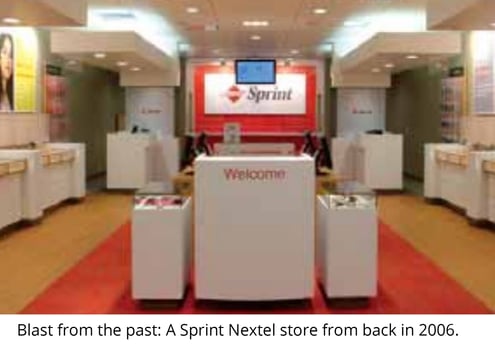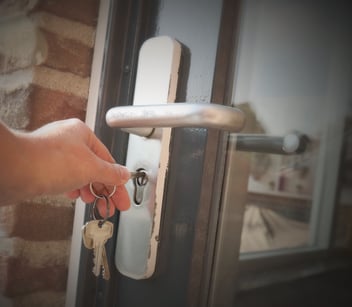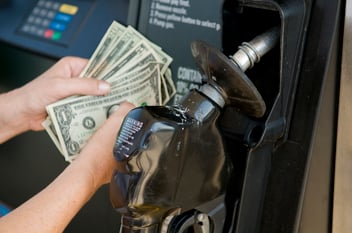Retail Disaster Recovery - A Client Story Revisited
InstaKey has plenty of long-standing partnerships with clients. Some began as far back as 20 years ago. On any given day at our headquarters, you’ll hear InstaKey employees tossing reminiscent client stories back and forth through office walls and down hallways. Remembering these warm and fuzzy moments reminds us why we get up every morning – to support our client’s businesses, making them more secure, in the most efficient, cost-effective way possible.

There is one such client story that was being tossed around just few days ago. It’s a 15-year-old story about how InstaKey made a big difference for Sprint (Sprint Nextel, at the time) stores in the New Orleans area, in disaster recovery efforts after Hurricane Katrina. It still comes up from time to time, especially around this time of year. The situation in which this story was based is not as warm and fuzzy as we would like, but the story has a good ending.
In fact, this story was published in Chain Store Age back in July of 2006.
Here is a re-sharing of that story:
Under Lock and Key
Key management system saves Sprint Nextel time and money
Keeping track of keys and locks is no easy task for retailers, even under the best of circumstances. But it was especially challenging for those with stores in New Orleans in the days following Hurricane Katrina. Unable to make contact with local store managers and other associates, many chains sought out locksmiths to rekey stores on an emergency basis.
 Sprint Nextel, however, was able to gain access to and secure its seven stores in the area without outside help. The company utilizes a key management program that allows doors to be rekeyed easily and quickly—and without the assistance of a locksmith.
Sprint Nextel, however, was able to gain access to and secure its seven stores in the area without outside help. The company utilizes a key management program that allows doors to be rekeyed easily and quickly—and without the assistance of a locksmith.
“Our key program helped save the day for us,” said Hank Roberts, who manages the facilities help desk for Sprint Nextel, Overland Park, Kan., which operates 1,700 stores under the Sprint and Nextel banners.
Sprint utilizes key control, from InstaKey, Denver, which combines specially designed hardware (including non-duplicable keys) with cloud-based records management. It allows the end-user to rekey a lock without having to remove a core from the door. Instead, the end-user simply inserts a special key in the lock and turns it according to directions. There is nothing to disassemble.
The system proved invaluable to Sprint in the days following the hurricane. Security was a concern and locksmiths, whose services were at a premium, were not that easy to come by.
“After the hurricane and floods hit, we needed to gain access to our stores so they could be surveyed to determine damage,” Roberts explained. “But the majority of people that worked in the stores had left the city, many had left the state and we didn’t have keys.”
InstaKey’s software program provides real-time tracking of every key, key holder and location. After Hurricane Katrina, Sprint immediately contacted the company and requested copies of the keys for the stores in the affected area. The company shipped the keys to Sprint’s local retail sales manager who was coordinating all store activities in the area. The manager immediately rekeyed the locks.
“Without this system, we would have needed a locksmith to go to all the locations, change the locks and so on,” Roberts said. “It would have been time-consuming and expensive. Also, locksmiths were not very available at that time.”
Sprint switched to the system several years ago.
“In previous years, we had to call in a locksmith each time a store needed to be re-keyed,” Roberts said. “In addition to the costs, there was the wait factor.”
With InstaKey, a lock can be rekeyed by turning a special, notched “step-change” key 180 degrees. The key removes a wafer from inside the core, resetting the pins inside so that the old keys cannot open the lock. The lock can be rekeyed with a step change key nine times, according to Roberts.
“The manager turns the step-change key, and the lock is automatically rekeyed to the next set of keys,” he added.
Once a lock is re-keyed, the store manager distributes new keys to the employees and the job is completed. InstaKey is kept updated as to all key changes, with the information stored in its database. After a store rekeys, InstaKey sends out a new Step Change Key and the corresponding set of employee keys. Both are stored away in the store’s safe until the lock needs to be rekeyed again.
“The system works so that the manager is always prepared for the next rekey,” Roberts said. “He can rekey the lock—and distribute the keys that will fit that lock—in no time at all. The next set of keys is always waiting in the safe.”
The system offers a number of advantages, Roberts said, including convenience and tight key control. But the biggest advantage is the cost savings. “Locksmiths don’t come cheap,” he noted.
The re-sharing of this story is an important reminder. In a disaster situation, after we make sure that our loved ones are safe, we have to turn our attention to our businesses and livelihoods to begin disaster recovery. Having a disaster recovery plan that includes protocol for your mechanical key system can make a big difference in gaining access and avoiding emergency spending at a time when businesses will need to conserve cash the most.
This is the time of year when hurricane season is just ramping up. With everything that 2020 has thrown as us, the last thing you need is to be is under-prepared to weather what is to come in the remainder of this disastrous year.
Sprint’s partnership with InstaKey started all the way back in 2003 and is still going strong today. Some faces, places and names have changed, but our commitment to partnership has not. We’re proud to support our clients in the best of times and through the worst of times. Doesn’t your organization deserve a partnership like that?





